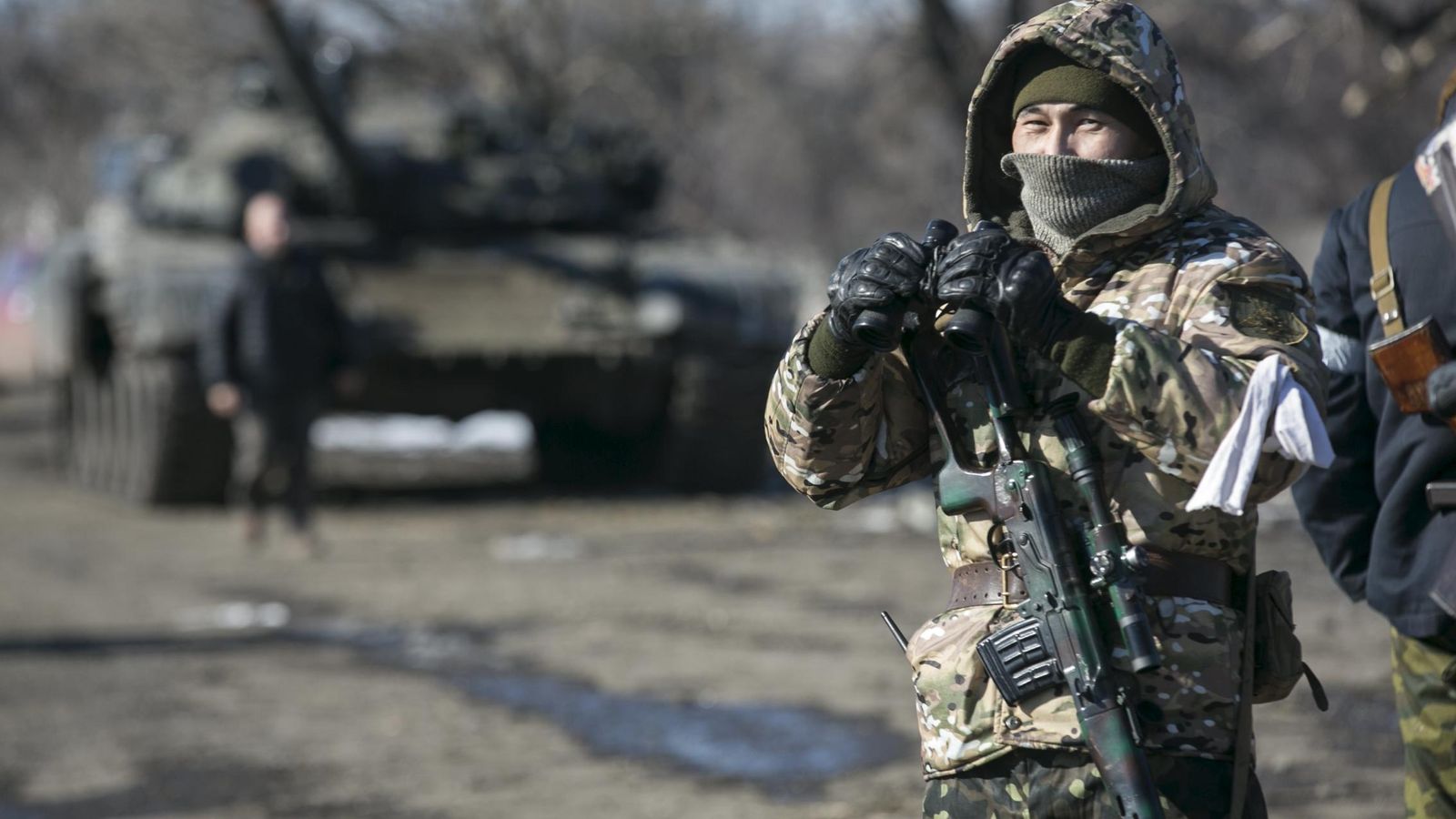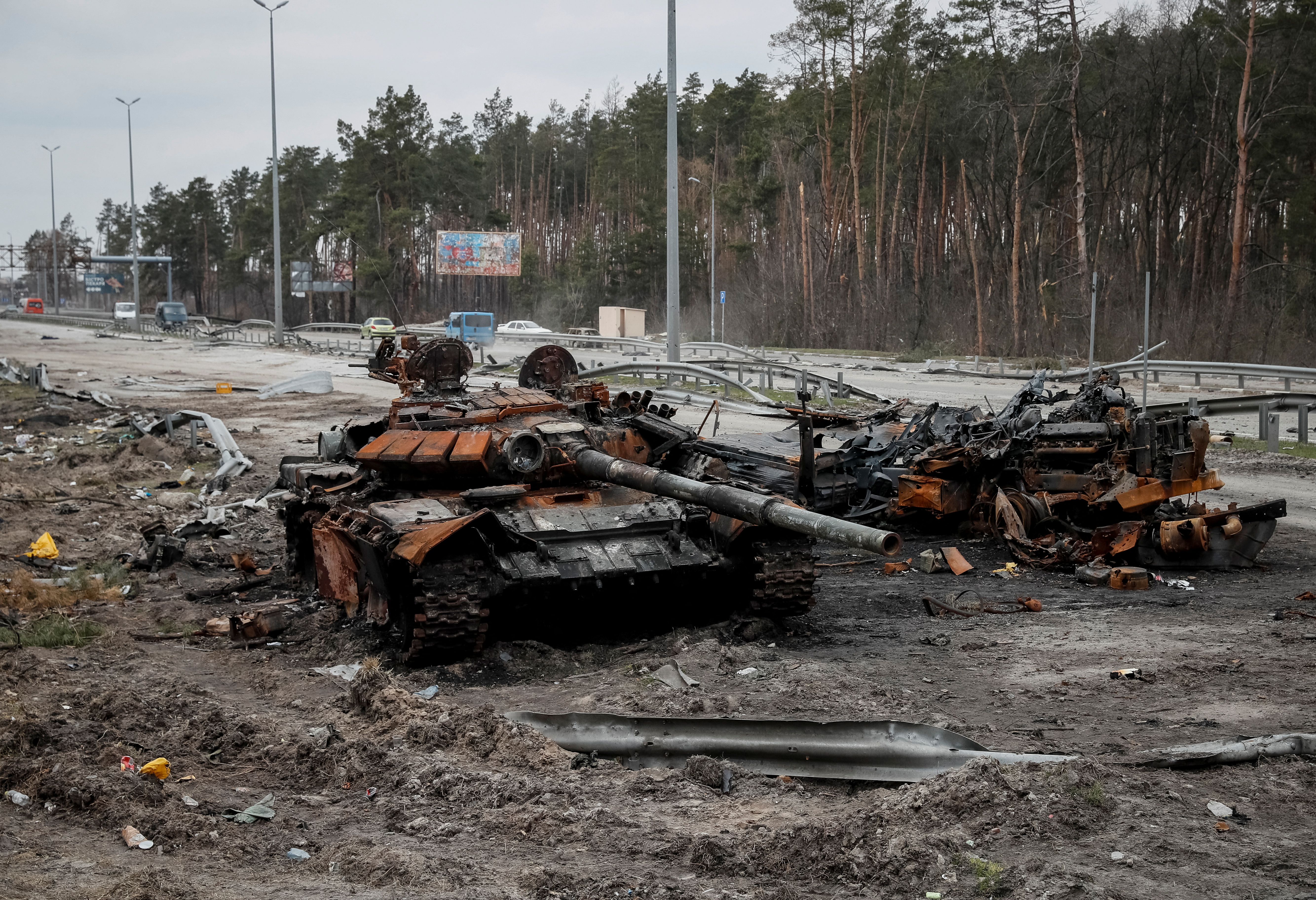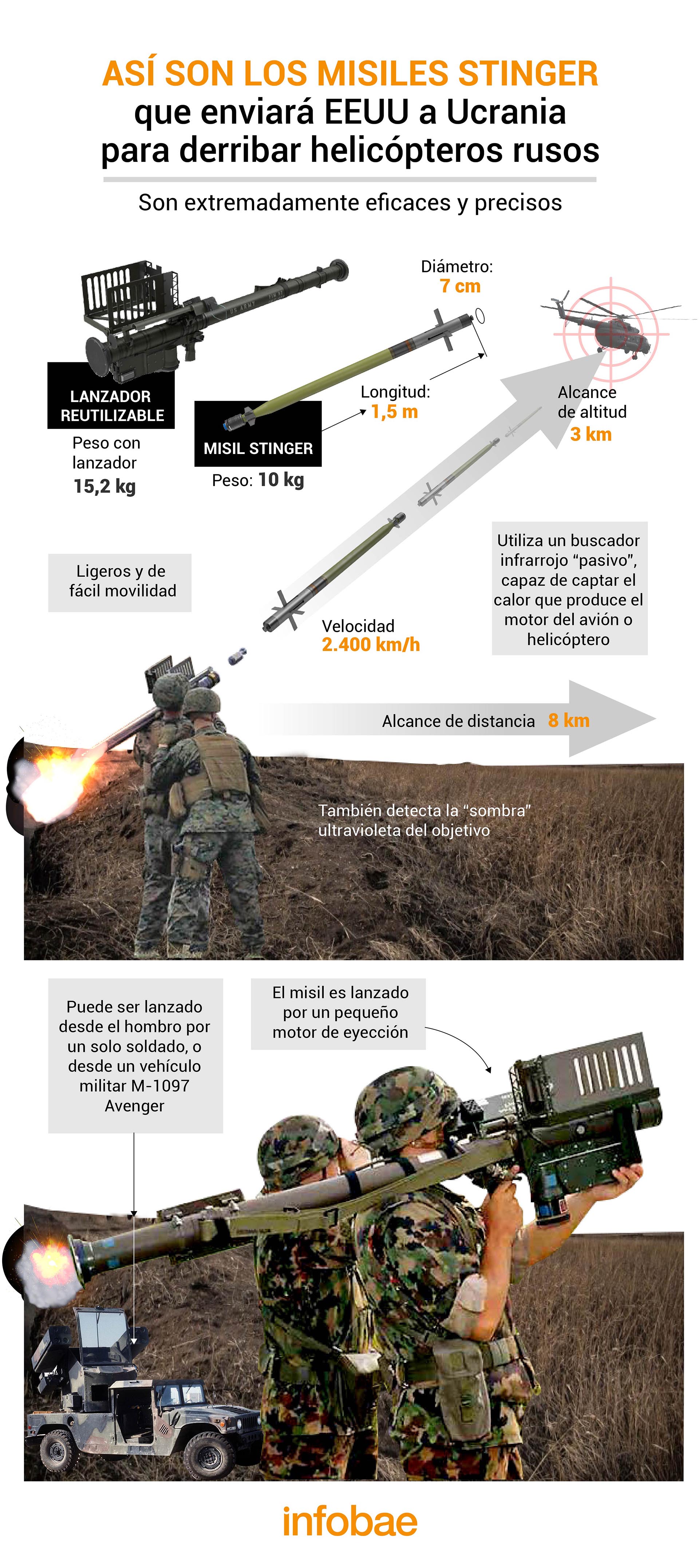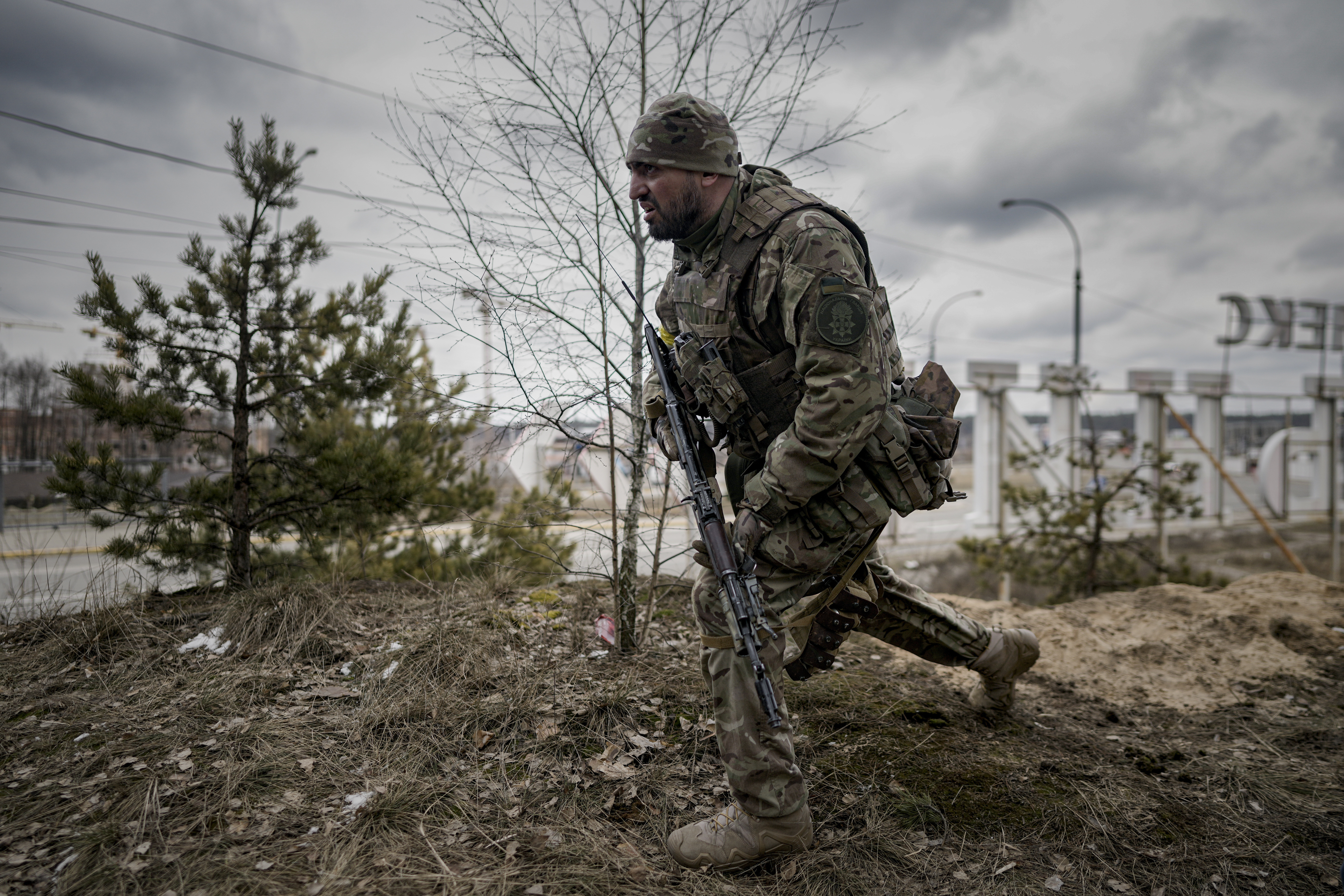The one in Kiev is a defeat of historic proportions for the Russians. The campaign started badly and went from bad to worse.
When Russian President Vladimir Putin launched his attack on Ukraine on February 24 after months of preparation at the border, he sent hundreds of elite soldiers — the best of the “spetsnaz” special forces — by helicopter to capture a poorly defended airfield at the gates of Kiev.
Other units were advancing through various sectors of Ukraine, including the eastern city of Kharkiv, the disputed Donbas region and points over the Black Sea. The big prize, however, was Kiev, the seat of power. That is why they dispatched special forces from the aeronautics in the early hours of the offensive.

Putin, however, failed to achieve his goal of promptly annihilating a much weaker Ukrainian army, without armaments or troops comparable to those of the Russians. The invading forces were not prepared for the resistance offered by Ukraine and were unable to adapt; they did not coordinate their ground and air operations; they did not foresee Ukraine's ability to defend its airspace; and they failed in basic military functions such as planning and implementing the replenishments.
“It's a really bad combination if you want to conquer a country,” said Peter Mansoor, a retired U.S. military general and professor of military history at Ohio State University.
At least for now, the Russians are moving forces from Kiev to the eastern region. In the long run, Putin may achieve some of his goals. The Kiev fiasco, however, will be remembered for a long time, especially for the shortcomings it revealed in military forces that are supposed to be one of the most powerful in the world.
“It's amazing,” said military historian Frederick Kagan, from the US Institute for War Studies, who says he knows no parallel in which a military power like Russia invades another country when it thinks it has everything ready and fails to subdue it.

On the first morning of the war, Russian Mi-8 combat helicopters flew over Kiev with the mission of capturing the Hostomel airfield on the northwest outskirts of the capital. The capture of the small airport, also known as Antonov, would have allowed them to have a base for the transfer of soldiers and vehicles to the entrance of the largest city in the country.
But things didn't go as planned. Several Russian helicopters are said to have been hit by missiles before reaching Hostomel and that when they finally landed on their runways, they suffered heavy losses caused by artillery fire.
Another attack to seize Vasylkiv airbase, south of Kiev, also met with strong resistance. Several Il-76s carrying paratroopers were said to have been shot down by Ukrainians.
While the Russians ended up taking the Hostomel airfield, Kiev's fierce resistance forced them to reconsider a plan that assumed that Ukraine would fall rapidly, the West would accept it, and Russian forces would not encounter strong resistance.
Airstrikes behind enemy lines, such as Hostomel's, are risky and complicated, as was evident when the United States sent 30 Apache helicopters to Iraq from Kuwait in 2003 to attack a division of the Iraqi Republican Guard. Along the way, helicopters were attacked with small arms and anti-aircraft equipment. One Apache was shot down and others were damaged, so the mission was aborted. Anyway, US forces quickly captured Baghdad.
The fact that the 45th Air Brigade of Russian Special Forces was unable to fulfill its incoming mission might have gone unnoticed if things improved. But it wasn't like that.
The Russians made some unsuccessful efforts to penetrate the heart of Kiev, and then tried to surround the capital, venturing further to the west. Against all odds, the Ukrainians stood firm and held back the Russians, using very efficiently Western-supplied weaponry, including portable anti-tank equipment, shoulder-fired Stinger anti-aircraft missiles and much more.

Last week the Russians left Hostomel as part of a much broader retreat.
A memorable aspect of the battle for Kiev was the presence of a publicized Russian resupply caravan of several kilometers on one of the main routes to the capital. Initially he got scared of the Ukrainians, but his forces managed to launch attacks and disperse the caravan to such an extent that it did not affect the war.
“At no time did they offer a relevant resupply to the forces that were deployed around Kiev, they never contributed anything,” said US Pentagon spokesman John Kirby. “The Ukrainians stopped that caravan pretty quickly, knocking down bridges, attacking the advance and driving with great agility.”
Mansoor says the Russians underestimated the number of troops they would need and demonstrated a “surprising inability” to perform basic military functions. They miscalculated what they needed to capture Kiev, he said.
“It was going to be a bit tough even if the Russian army had been competent,” he said. “But he proved incapable of waging a modern war.”

Putin is not the only one surprised by the initial setbacks of his army. Experts from the West predicted that, if there were an invasion, Ukraine would fall in a short time and the Russians would take the capital in a matter of days and the country in a few weeks. Some analysts did wonder whether Putin had weighed well the level of training Ukrainians received from the West, especially after the Russian capture of Crimea and its incursion into Donbas.
On March 25, a month after the start of the invasion, the Russians said they had achieved their objectives in the Kiev region and would focus on the separatist area of Donbas in eastern Ukraine. Some speculated that Putin wanted to buy time without giving up his goal, but within a few days the withdrawal from Kiev was impossible to disguise.
Putin could set himself simpler goals, such as securing control of Donbas and perhaps creating a land passage between Donbas and the Crimean peninsula. The Kiev fiasco and the shortcomings of the Russian military apparatus, however, suggest that they will hardly try to capture Kiev in the short term.
“I think they learned their lesson,” Mansoor said.
Keep reading:
Últimas Noticias
Debanhi Escobar: they secured the motel where she was found lifeless in a cistern
Members of the Specialized Prosecutor's Office in Nuevo León secured the Nueva Castilla Motel as part of the investigations into the case

The oldest person in the world died at the age of 119
Kane Tanaka lived in Japan. She was born six months earlier than George Orwell, the same year that the Wright brothers first flew, and Marie Curie became the first woman to win a Nobel Prize

Macabre find in CDMX: they left a body bagged and tied in a taxi
The body was left in the back seats of the car. It was covered with black bags and tied with industrial tape
The eagles of America will face Manchester City in a duel of legends. Here are the details
The top Mexican football champion will play a match with Pep Guardiola's squad in the Lone Star Cup

Why is it good to bring dogs out to know the world when they are puppies
A so-called protection against the spread of diseases threatens the integral development of dogs




